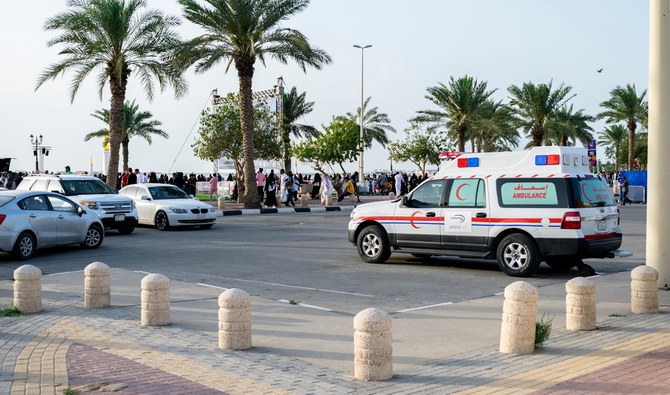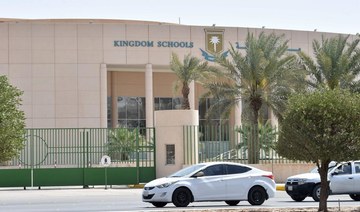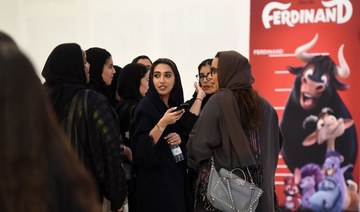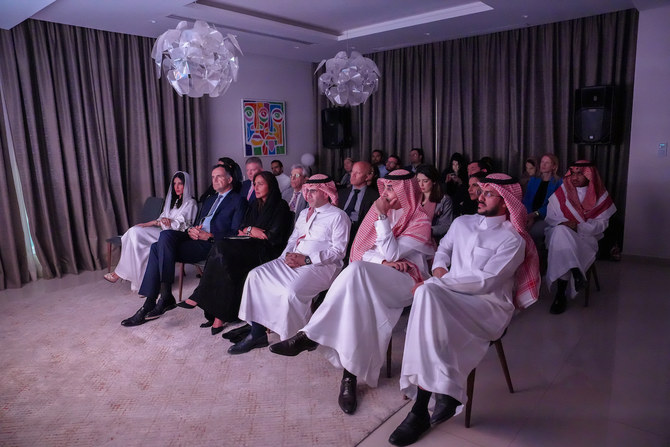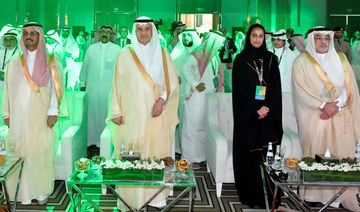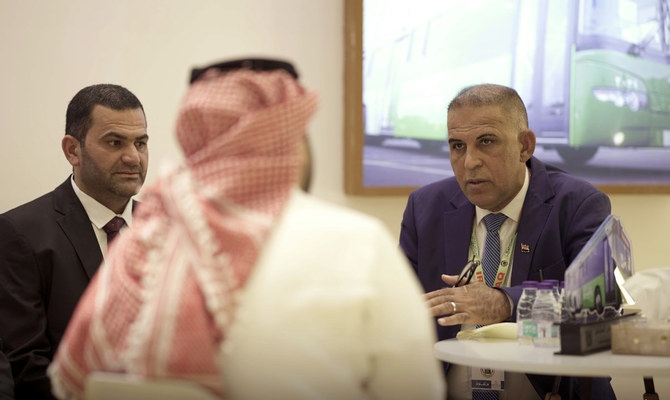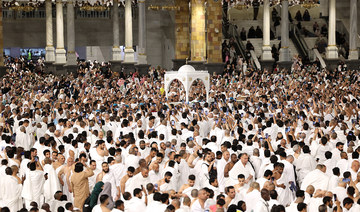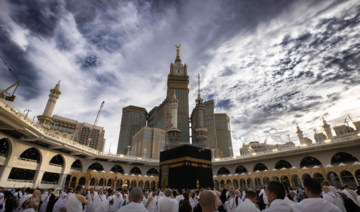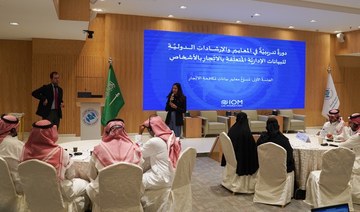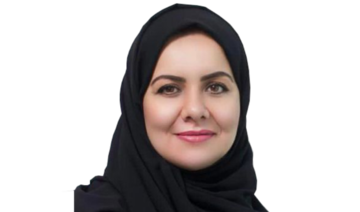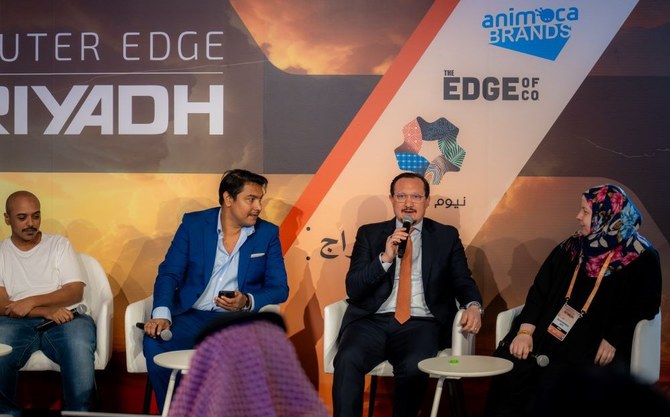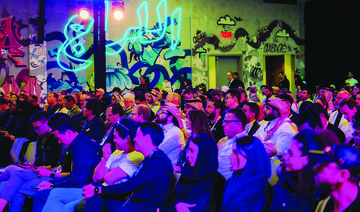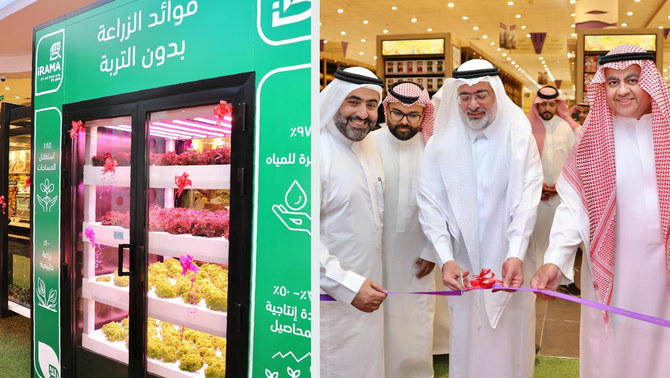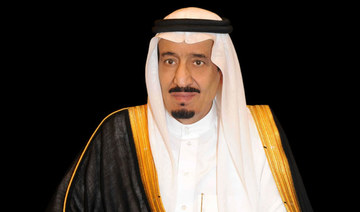RIYADH: Saudi Arabia on Thursday temporarily stopped all travel to and from almost all of Europe and 12 more countries in Asia and Africa as the number of coronavirus cases in the Kingdom jumped to 45.
The Ministry of Health on Wednesday said the latest cases include a man and a woman who were tested and placed in quarantine when they returned from Iraq, and a 12-year-old girl in Al-Qatif. It is believed she contracted the virus from her grandfather, who recently returned from a trip to Iran.
The remaining 21 cases involve Egyptians who had contact with a visitor from their home country who previously tested positive for the coronavirus.
Of the 45 people infected by the virus, one has recovered and the rest are in isolation and receiving health care according to accepted and approved practices.
Earlier in the day, the ministry announced the patient who has been given the all clear was the Saudi national who on Mar. 2 was the first to test positive for COVID-19.
Opinion
This section contains relevant reference points, placed in (Opinion field)
Included in the new travel ban are member-countries of the European Union that had earlier been left out in last Monday's travel ban list, as well as Switzerland, India, Pakistan, Sri Lanka, Philippines, Sudan, Ethiopia, South Sudan, Eritrea, Kenya, Djibouti, and Somalia.
A statement by the Saudi Ministry of Interior said Saudi citizens and nationals of the countries covered by the ban who have valid residency in the Kingdom are given 72-hour period to return to Saudi Arabia before the travel suspension decision becomes effective.
Transportation through all land ports with Jordan is also suspended, except for the passage of passengers considered as "humanitarian cases" and except for commercial and cargo traffic.
Excluded in the travel ban are health workers in the Kingdom from Philippines and India, and evacuation, shipping and trade trips taking necessary precautions.
COUNTRIES IN SAUDI ARABIA'S TEMPORARILY TRAVEL SUSPENSION LIST
MENA Region
1. Bahrain
2. Egypt
3. Iraq
4. Kuwait
5. Lebanon
6. Oman
7. Syria
8. Turkey
9. UAE
ASIA
1. China
2. India
3. Pakistan
4. Philippines
5. South Korea
6. Sri Lanka
AFRICA
1. Djibouti
2. Eritrea
3. Ethiopia
4. Kenya
5. Somalia
6. South Sudan
7. Sudan
EUROPE
1. Austria
2. Belgium
3. Bulgaria
4. Croatia
5. Cyprus
6. Czech Republic
7. Denmark
8. Estonia
9. Finland
10. France
11. Germany
12. Greece
13. Hungary
14. Ireland
15. Italy
16. Latvia
17. Lithuania
18. Luxembourg
19. Malta
20. Netherlands
21. Poland
22. Portugal
23. Romania
24. Slovakia
25. Slovenia
26. Spain
27. Sweden
28. Switzerland (non-EU member)
On Monday, the Kingdom suspended travel for citizens and residents to the UAE, Kuwait, Bahrain, Lebanon, Syria, Egypt, Iraq, Oman, Italy, South Korea, France, Germany, Turkey and Spain.
Since early February, Saudi Arabia suspended travel to and from China, where the COVID-19 started.
The Saudi Health Ministry repeated its call for anyone who recently visited a country in which the coronavirus has spread to immediately contact its service center by calling the toll-free number, 937.
In addition, it urged members of the public who are concerned about the virus, or want more information about it and precautions that can be taken, to contact the ministry. It stressed that only official sources can be relied on to provide accurate information.




